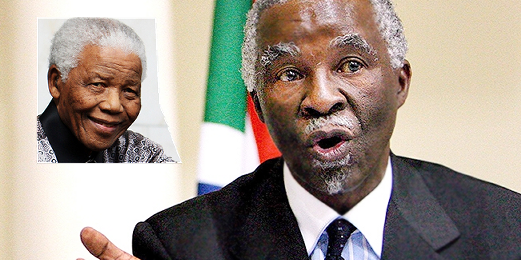'NO' Vote More Likely After Germany Blinks On 'Grexit'
In the final hours before Greeks vote in a referendum Sunday, German Finance Minister Wolfgang Schäuble has abandoned his country's stance that a 'NO' vote means a certain exit from the euro currency.
The hardline CDU colleague of Angela Merkel also seemed to indicate that ECB liquidity support for Greek banks --currently withdrawn for a week, forcing their closure-- would resume after the referendum, regardless of the outcome.
The hardline CDU colleague of Angela Merkel also seemed to indicate that ECB liquidity support for Greek banks --currently withdrawn for a week, forcing their closure-- would resume after the referendum, regardless of the outcome.
In an interview with Bild, Schäuble said:
“Greece is a member of the eurozone. There’s no doubt about that. Whether with the euro or temporarily without it: only the Greeks can answer this question. And it is clear that we will not leave the people in the lurch.”
Parsing his words carefully, the first two sentences of his statement above seem to quite definitively rule out a Greek exit from the Euro zone, despite his lukewarm reference to a "temporary" conditionality.
“It is clear that we will not leave the people in the lurch.”
Coupled with the no "lurch" assurance which follows, the whole is typical of oblique central banker 'speak' about market support. It's a clear signal that Greece belongs in the euro currency and it intimates a resumption of euro liquidity support for Greek banks.
Whatever the interpretation, the significant softening in Germany's position on the vote, was noted by international media:
"German finance minister, Wolfgang Schäuble, appears to bolster No vote in last-minute intervention on Saturday" - Guardian UK
After more than five months of eyeball-to-eyeball confrontation between Alexis Tsipras’s radical left-led government and Greece’s creditors, and with only hours to go before voting began, one of the most hawkish of the lenders appeared to blink. Germany’s finance minister, Wolfgang Schäuble, until now even more of a hardliner than his chancellor Angela Merkel, suddenly turned a more conciliatory face towards Athens.
The policy adjustment is the second seismic shift among the so-called "Troika" of financial interests negotiating with the Greek Syriza government.
Just two days ago we reported a clarification of the IMF position in an unattributed briefing to the Guardian newspaper:
See Also:
The IMF has electrified the referendum debate in Greece after it conceded that the crisis-ridden country needs up to €60bn of extra funds over the next three years and a 20-year grace period on debt repayments to create “a breathing space”.
We can reasonably assume that prudent private polling may be informing these two shifts in position. If so, the scale of the policy moves mean that any early tide towards a 'YES' may have stalled -or even reversed. We should discount local media polls for potential bias.
An unquenchable 'NO' fire may be behind the smoke which has caused all this institutional blinking, so to speak. As Greeks get wind of these latest policy shifts - it can only further embolden potential 'NO' voters.
Something that Wolfgang Schäuble would have foreseen - before fanning those very flames with his latest words.
Something that Wolfgang Schäuble would have foreseen - before fanning those very flames with his latest words.
See Also:




Comments
Post a Comment